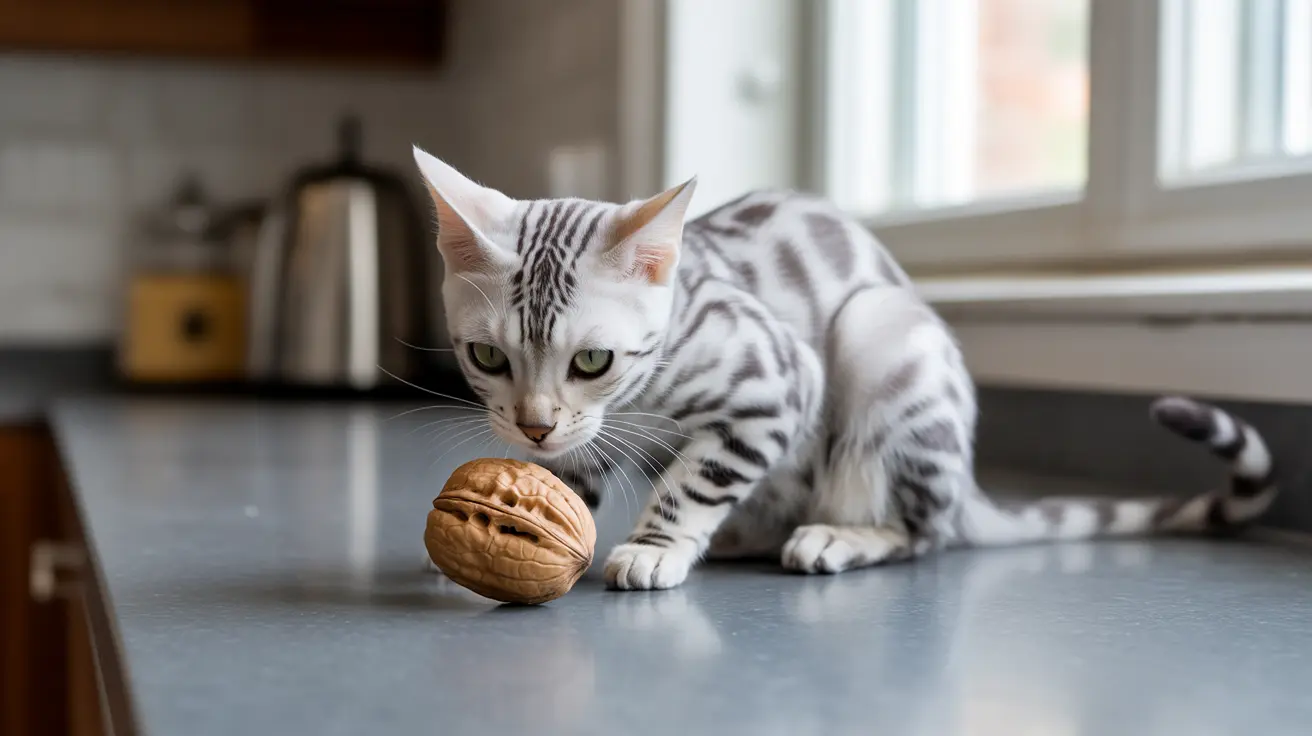As a cat owner, you might wonder about sharing human foods with your feline friend. When it comes to walnuts, it's crucial to understand the potential risks and dangers they pose to cats. This comprehensive guide will explore why walnuts should be kept away from your cat and what to do if accidental consumption occurs.
While walnuts are celebrated as a nutritious snack for humans, they can be hazardous to cats due to their unique digestive system and nutritional needs. Let's delve into why these nuts should never be part of your cat's diet.
Why Walnuts Are Dangerous for Cats
Cats are obligate carnivores, meaning their bodies are designed to process and utilize nutrients primarily from animal-based proteins. Their digestive systems aren't equipped to handle nuts like walnuts, which can lead to several health complications.
The high fat content in walnuts can trigger severe digestive issues and potentially lead to pancreatitis, a serious inflammation of the pancreas. Even small amounts can cause significant discomfort for your feline companion.
Physical Hazards and Choking Risks
Walnuts present immediate physical dangers to cats, including:
- Choking hazards from whole nuts or large pieces
- Potential intestinal blockages requiring emergency surgery
- Sharp edges of walnut shells that can cause internal injury
- Risk of dental damage from attempting to chew hard nuts
The Hidden Danger: Mold Toxicity
Perhaps the most serious threat comes from moldy walnuts, which can contain tremorgenic mycotoxins. These dangerous compounds can cause severe neurological symptoms in cats, including:
- Muscle tremors and seizures
- Disorientation and confusion
- Severe vomiting and diarrhea
- Potentially fatal reactions if left untreated
Digestive System Impact
When cats consume walnuts, they typically experience various digestive disturbances, including:
- Acute gastrointestinal upset
- Vomiting and diarrhea
- Abdominal pain and discomfort
- Loss of appetite
- Lethargy and weakness
Prevention and Safe Alternatives
To keep your cat safe, implement these preventive measures:
- Store walnuts and other nuts in sealed containers
- Keep kitchen counters clear of nuts and nut products
- Choose cat-specific treats approved by veterinarians
- Offer safe alternatives like commercial cat treats or small pieces of cooked lean meat
What to Do in Case of Ingestion
If your cat consumes walnuts, take these immediate steps:
- Remove any remaining walnuts from your cat's reach
- Monitor for symptoms of distress
- Contact your veterinarian for guidance
- Keep emergency veterinary contact information readily available
Frequently Asked Questions
Can cats safely eat walnuts or are they harmful to their health?
No, cats cannot safely eat walnuts. They are harmful to cats due to their high fat content, risk of mold contamination, and potential for causing digestive issues or choking hazards.
What symptoms should I watch for if my cat accidentally eats a walnut?
Monitor for vomiting, diarrhea, lethargy, loss of appetite, and unusual behavior. In cases of mold exposure, watch for tremors, seizures, or disorientation. Contact your vet immediately if these symptoms occur.
Why are moldy walnuts particularly dangerous for cats?
Moldy walnuts contain tremorgenic mycotoxins that can cause severe neurological symptoms in cats, including tremors, seizures, and potentially life-threatening complications if not treated promptly.
How can walnuts cause choking or digestive blockages in cats?
Whole walnuts or large pieces can become lodged in a cat's throat or digestive tract due to their size and shape. The hard texture can also cause intestinal blockages requiring emergency surgery.
What are safe snack alternatives to walnuts for cats?
Safe alternatives include veterinarian-approved cat treats, small pieces of cooked lean meat, or commercial cat-specific treats designed to meet feline nutritional needs.
Remember, when it comes to your cat's diet, it's always better to err on the side of caution and stick to veterinarian-approved foods and treats specifically formulated for felines.






